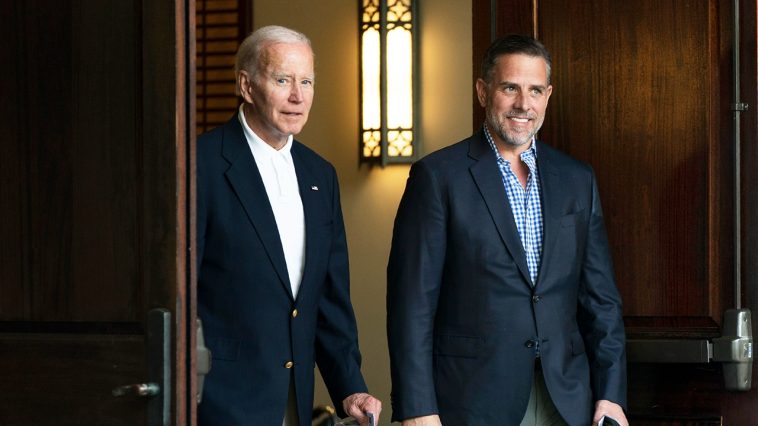President Joe Biden has made history as the first sitting U.S. president to pardon his own child, granting clemency to his son, Hunter Biden, who faced federal convictions for gun and tax offenses. This decision marks a significant reversal from previous assurances by both the President and White House officials that no such pardon would occur.
In June, following Hunter Biden’s conviction on three federal gun charges, President Biden explicitly stated, “I will not pardon him.” White House Press Secretary Karine Jean-Pierre reiterated this stance as recently as early November, affirming, “Our answer stands — which is no.”
Despite these prior commitments, the President issued a full and unconditional pardon covering all potential federal offenses committed by Hunter Biden between January 1, 2014, and December 1, 2024. In a statement, President Biden justified his decision by asserting that his son had been “unfairly prosecuted” and that “raw politics” had influenced the legal proceedings.
Hunter Biden, 54, was scheduled for sentencing on December 12 for the gun charges and December 16 for tax offenses, with the potential for significant prison time. The presidential pardon nullifies these convictions, sparing him from any further legal consequences.
The pardon has ignited a political firestorm, drawing criticism from both sides of the aisle. President-elect Donald Trump condemned the move as an “abuse and miscarriage of justice,” while some Democrats expressed frustration over the reversal, suggesting it undermines public trust in the legal system.
White House Press Secretary Karine Jean-Pierre defended the President’s decision, stating that Hunter Biden was “singled out politically” due to his last name and that the President struggled with the decision over the Thanksgiving weekend. She maintained that President Biden continues to “believe in the Department of Justice,” despite acknowledging that “politics infected the process.”
This unprecedented action raises questions about the impartiality of the justice system and the appropriate use of presidential pardon powers, especially as the administration approaches its conclusion.


